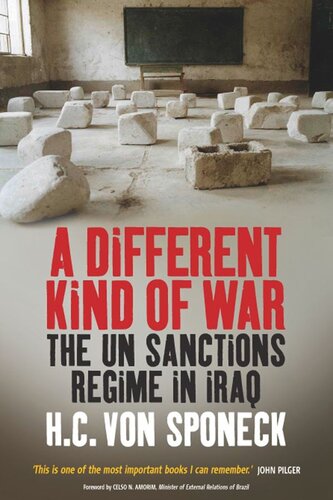

Most ebook files are in PDF format, so you can easily read them using various software such as Foxit Reader or directly on the Google Chrome browser.
Some ebook files are released by publishers in other formats such as .awz, .mobi, .epub, .fb2, etc. You may need to install specific software to read these formats on mobile/PC, such as Calibre.
Please read the tutorial at this link: https://ebookbell.com/faq
We offer FREE conversion to the popular formats you request; however, this may take some time. Therefore, right after payment, please email us, and we will try to provide the service as quickly as possible.
For some exceptional file formats or broken links (if any), please refrain from opening any disputes. Instead, email us first, and we will try to assist within a maximum of 6 hours.
EbookBell Team

0.0
0 reviewsAt a time when the international community is again threatening some countries with sanctions, this book comes as a warning. It should be mandatory reading for all those politicians and their foreign-policy advisors who continue to consider sanctions an effective form of policy. The author not only offers us a critical, lucid, and well-informed survey of political developments in Iraq, but also a heart-rending account of the suffering of the Iraqi people. It was they who bore the brunt of the 13-year's sanctions, while the members of Saddam's regime continued to live in luxury and accumulate huge fortunes.
H.-C. von Sponeck, the former “UN Humanitarian Coordinator for Iraq,” explores the UN's sanction policies against Iraq, their consequences, and the domestic conditions during this period. His extensive research is based on previously unpublished internal UN documents and discussions with UN decision makers (such as General Secretary Kofi Annan), Iraqi officials and politicians (including Saddam Hussein), and ordinary Iraqis. The author’s findings question who really benefited from the program, what role the UN Security Council and its various member states played, and whether there were then and are today alternatives to the UN's Iraq policies.